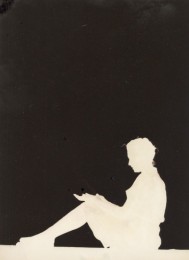"Just as darkness is sometimes defined as the absence of light, so age is defined as the absence of youth. Age is assessed not by what it is, but by what it is not." When I read this the other day, written in 1993 by Betty Friedan in her extraordinary book, The Fountain of Age, I realized that even as we 77 million boomers are now clearly in our "middle" years, the pressure to be and look youthful has gotten even more ferocious since Friedan made her observation.
An Avon Global Women’s Survey discovered that 80 percent of women ages 15 to 24 – yes, most teenagers - believe that they are already experiencing signs of aging. This cannot end well.
If kids are freaking out that they look old, they deny themselves the pleasures of actually being young. And if older people feel driven to appear young, they shut themselves off from essential emotional growth in maturity.
"An accurate, realistic, active identification with one’s own aging – as opposed both to resignation to the stereotype of being 'old' and denial of age changes," according to Freidan, "seems an important key to vital aging, and even longevity."
In The Fountain of Age, Friedan cited the studies of Margaret Clark of the Langley Porter Neuropsychiatric Institute in San Francisco to underscore her insight. Clark found that "those who held most tenaciously to certain values of their youth were the most likely candidates for psychiatric breakdown in age. The self-esteem of the healthy older group seemed linked to 'the fruitfulness of a search for meaning in one’s life in the later years,' as compared to the mentally ill, who were still pursuing the values of their youth. The healthy group had a broader perspective, which they call by different names: wisdom, maturity, peacefulness, or mellowing."
Dr. Andrew Weil’s take in his book, "Healthy Aging," is similar: "If aging is written into the laws of the universe, then acceptance of it must be a prerequisite for doing it in a graceful way. Yet nonacceptance of aging seems to be the rule in our society, not the exception. A great many people try to deny its reality and progress. Two of the most obvious ways of doing so are the use of cosmetic products and cosmetic surgery."
His ultimate conclusion is that to deny aging is to deny ourselves access to a deeply nourishing experience. "Because aging reminds us of our own mortality, it can be a primary stimulus to spiritual awakening and growth."
And the gerontologist Robert Kastenbaum suggests that "holding onto youth and the denial of age leads to mental and emotional 'stagnation.'"
When all of the experts suggest that our later years are a time for spiritual and emotional growth and that that growth is not only virtuous but actually leads to better physical health, it seems to me that it is time for us boomers to ignore the youth-obsessed marketing that our generation triggered 40 years ago, and to begin embracing the beauty in age.
